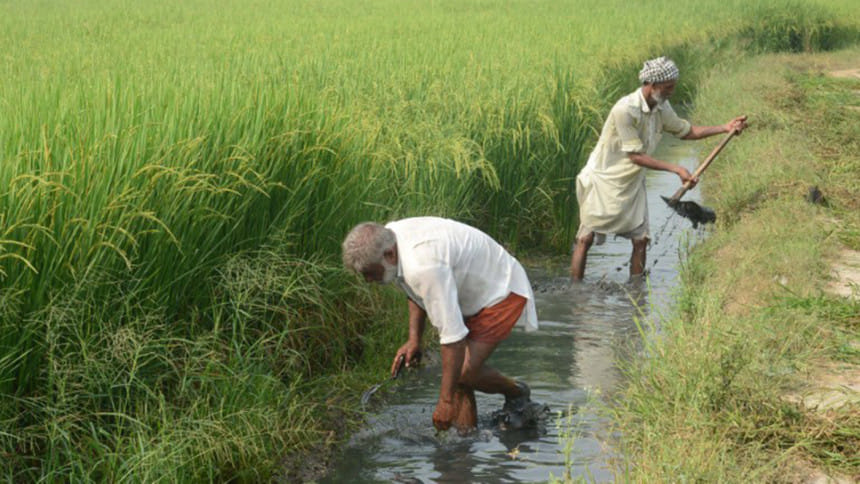Note ban: Ancient barter trade returns to Indian farmlands

Farmers in eastern India have fallen back on the exchange of labour to tide over the cash crunch after the launch of the government's demonetisation drive in villages.
Jugal Kishore Lenka, a small and marginal farmer from Goda Village in Erasama block of Odisha's Jagatsinghpur District in eastern India, was worried he would not be able to meet the cash requirement for harvesting paddy. Lenka, however, has found a way to tide over the demonetisation-induced cash crunch. Sitting along with a fellow farmer who was facing the same predicament, the 45-year-old farmer has decided to share labour.
Hamstrung by note-ban, paddy cultivators are falling back on the ancient practice of "badalia'' -- an age-old practice of labour exchange prevalent in coastal districts.
Ironically, the compulsions of a cash less' economy that is gradually imposed by Indian Prime Minister Narendra Modi, have prompted farmers in remote villages of eastern Indian to return to the good old barter system- even to harvest crops.
Landowners usually hire marginal and seasonal farm-hands during the harvest seasons to tend to the crop - the farm hands charge money for an average harvesting period of three-months into March. Bulk of the floating rural economy in heartland India subsists on the harvesting seasons for "livelihood". During the lean seasons, the farm-labourers seek recourse in alternative means of income - as performers, day wage earners and migrant workers.
The ongoing process of demonetisation imposed by the government to purge black money and fake currency that had flooded the market has hit the harvest trade. Farmers have no money to pay the harvest-crew or spend on actual harvesting.
"We will begin harvesting paddy in a day or two. But the currency crisis has prevented me from hiring farm labourers. My fellow farmer, Sudam Sahu, is encountering the same crisis. Between us, we have pooled in four labourers for the kharif (winter) harvesting work. We will exchange the labourers for the cutting work," Lenka, who owns half-an-acre of irrigated farmland, said.
Under the system of "Badalia" a farmer, who is not necessarily an agricultural labourer, works in another farmer's without wage. Subsequently, he gets similar hours of labour in return. In other words, it is called 'bartering of labour.' "Though this practice was in vogue long ago, farmers often revive it when they battle shortage of farm labour," deputy director, Agriculture, Prafulla Kumar Mishra, pointed out.
This practice of labour exchange is slowly picking up in certain pockets of the state because of the deepening of the farm labour crisis. We have received reports of labour exchange from some areas," he said.
Another farmer Mukund Behera, 53, from Nikirai village in Kendrapara district had no clue how to harvest his paddy as he did not have cash to pay wages for casual farm hands.
He entered into an understanding with fellow farmer Gokuli Rout living in the neighbourhood to use his farm hands. In return, he pledged to reciprocate.
"We have begun the harvesting. After Rout's harvesting comes to an end, it will be my turn. We hope to finish the joint operation in eight to ten days from now," Behera said. "We usually hire labourers for the annual paddy cultivation. This year, we have a good crop and unless it is harvested in time, it will be laid to waste. It's a crisis situation. Toiling in another farmer's field will not lower one's dignity. But it is the need of the hour," Behera said. Labour exchange is also fostering a better communal and social bonding among farmers, he added.
The agrarian society has been devastated by the demonetisation. The vegetable growers of eastern India have been hit. Unable to draw buyers, they are allowing cattle to graze on vegetable farms or are dumping tomatoes by the highway.
The cooperative banks and the micro-credit societies have dried up as ATMs in the urban areas, another villager said.
Copyright: The Statesman/ Asia News Network

 For all latest news, follow The Daily Star's Google News channel.
For all latest news, follow The Daily Star's Google News channel. 



Comments